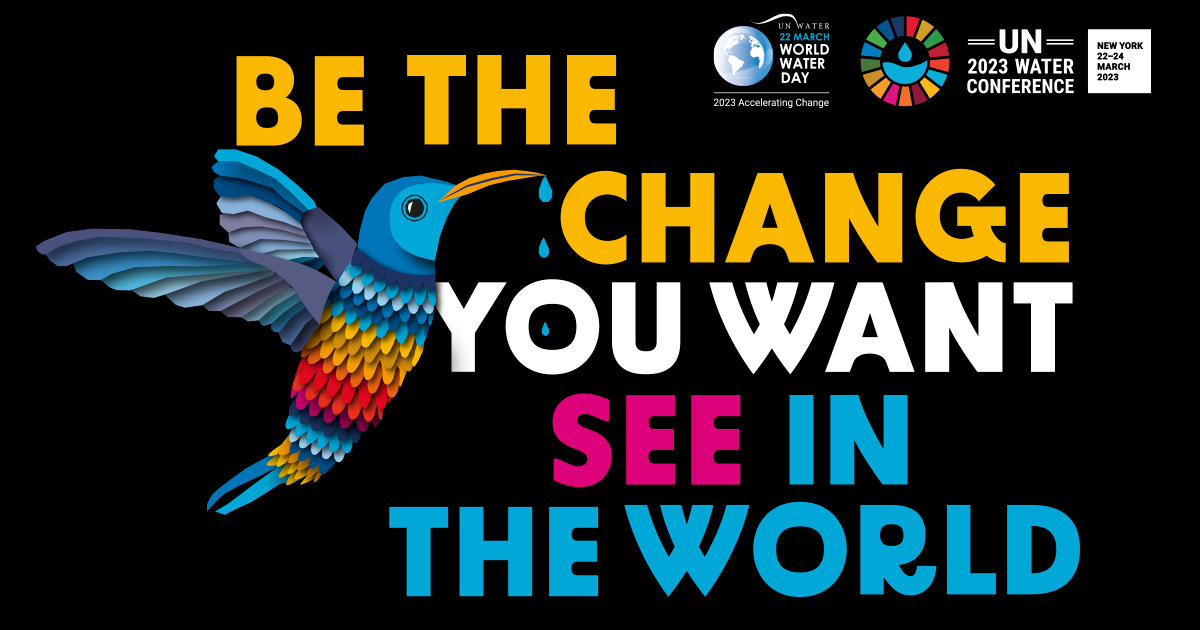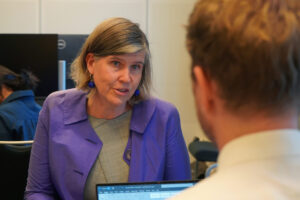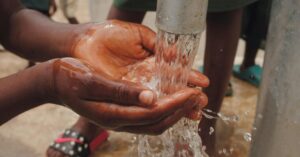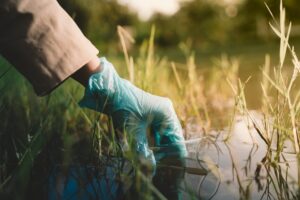World Water Day this year will focus on accelerating change to solve the water and sanitation crisis. An interim assessment of the progress of the sustainable development goals (SDGs) has revealed that we are woefully off track to meet the targets for SDG 6, namely clean water and sanitation for all by 2030.
The campaign around this year’s World Water Day is beautifully executed; bold, eye-catching graphics neatly convey the theme of ‘be the change you want to see in the world’. It draws on a traditional story about a little hummingbird flying back and forth carrying droplets of water to put out a forest fire. The story encapsulates the message of how we can all play a part, one drop at a time.
Yet this often-told story falls short
In the story, the hummingbird doesn’t manage to inspire the other animals to join in, who stand idly by watching their home be engulfed in flames. As such, the exhaustive efforts of the little bird seem futile against the enormity of extinguishing the fire alone. No doubt she feels better knowing she’s doing what she can, but unless those more powerful than her act too, that’s all it is.
As whilst the campaign also highlights actions that we all can, and should, do – it could be argued that it takes the focus off the biggest problem at hand, that hitting the ambitions targets of SDG 6 requires enormous system change. Local citizens agreeing to not flush pharmaceuticals and household chemicals down their drains will be in vain if the local municipality doesn’t hold to account the nearby chemical processing plant that dumps untreated waste into local waterways.
Real change comes from those who hold the power
Individual action is important, but for truly sustainable change the real power lies with legally binding treaties and governments committing to stringent targets. And when people believe that their collective action can add to something concrete, and can make a genuine difference, they will then be more likely to get on board and align their efforts with those necessary for a water-wise world.
We love the UN’s campaign around World Water Day and agree that we must all take action to help solve the water crisis. Having said that, we want to ensure that the focus stays on governments, leaders, and global policymakers on World Water Day this year, which occurs on the opening day of UN 2023 Water Conference. It’s essential that the majority of commitments feeding into the Water Action Agenda come from those that have the power to influence all sectors of society at scale.
Relying on actions from a conscientious public is not enough. Governments need to increase their efforts at four times the current speed if we are to come anywhere close to meeting SDG 6 within seven years. Indeed, the water crisis is undermining progress on all the SGDs, from health to hunger, gender equality to jobs, education to industry, disasters to peace.
2023, the year for action
If we want 2023 to be the watershed moment we trust it can be, we need strong global commitments from everyone, especially those with decision-making power.










